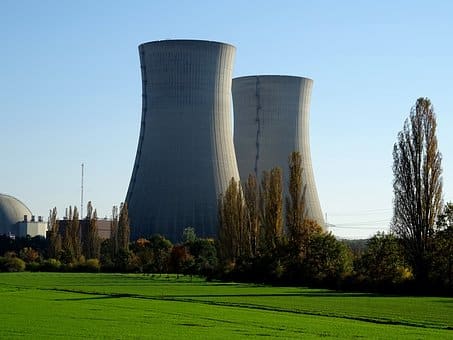Over 20 Nations Unite in Commitment to Triple Nuclear Energy Capacity for Net-Zero Emissions

The U.S. and 21 other countries from four continents have pledged to triple nuclear energy capacity globally by mid-century from 2020 levels at the 28th Conference of the Parties to the U.N. Framework Convention on Climate Change (COP28). The “Declaration to Triple Nuclear Energy,” unveiled on Dec. 2, recognizes the crucial role of nuclear energy in achieving global net-zero greenhouse gas emissions by 2050 and continuing efforts to limit the global temperature rise to 1.5-degree. This commitment includes ensuring responsible operation, mobilizing investments, engaging financial institutions, supporting diverse reactor development, promoting resilient supply chains, and encouraging the extension of nuclear plant lifetimes.
This significant event brought representatives from nations worldwide to engage in negotiations focused on collaboratively addressing and mitigating the impacts of climate change. COP28 represents the conclusion of the “global stocktake,” the first assessment of progress in implementing the 2015 Paris Agreement, according to the United Nations Framework Convention on Climate Change. The historic climate pact, signed in December 2015 by nearly every country in the world, commits the world leaders to keep the average global temperature below 2 degree Celsius above pre-industrial levels and try to limit that increase to 1.5 degrees Celsius.
Key components of the declaration are described below
Recognition of Nuclear Energy’s Role:
Recognizing nuclear energy as the second-largest source of clean baseload power is crucial for achieving global net-zero greenhouse gas emissions by 2050. The acknowledgment underscores the significance of nuclear science and technology in climate change monitoring, with the International Atomic Energy Agency playing a key role. Additionally, the declaration recognizes the potential of new nuclear technologies, characterized by a small land footprint and compatibility with renewables, in providing additional flexibilities that support decarbonization beyond the power sector.
Commitments and Actions:
A global commitment is vital to tripling nuclear energy capacity from 2020 to 2050, necessitating innovative financing mechanisms. This includes fostering responsible nuclear plant operations and ensuring safety. To achieve this goal, international financial institutions and regional bodies are invited to revise lending policies, actively supporting nuclear energy initiatives. Emphasis is placed on developing various reactors, such as small modular and advanced reactors, for both power generation and industrial applications, reaffirming the crucial role of nuclear energy in a sustainable global energy landscape.
Supply Chains and Lifetimes:
Acknowledging the imperative of resilient supply chains, especially in fuel provision, is crucial for the safe and secure operation of nuclear power plants. Additionally, recognizing the potential for extending the lifetimes of nuclear power plants, in alignment with the highest standards where technically feasible, reflects a dedication to optimize existing infrastructure sustainably and safely.
Recently, the U.S. Energy Department announced a strategic partnership with the Department for Energy Security and Net Zero of the United Kingdom of Great Britain and Northern Ireland. This collaboration aims to expedite the demonstration and commercialization of fusion energy, offering a promising pathway for a low-carbon, secure, reliable, and sustainable energy supply. Positioned to reshape global efforts in achieving net-zero carbon emissions, this initiative aligns closely with the United States’ Bold Decadal Vision for Commercial Fusion Energy and the UK’s Fusion Strategy.
EnerKnol Pulses like this one are powered by the EnerKnol Platform—the first comprehensive database for real-time energy policy tracking. Sign up for a free trial below for access to key regulatory data and deep industry insights across the energy spectrum.
ACCESS FREE TRIAL